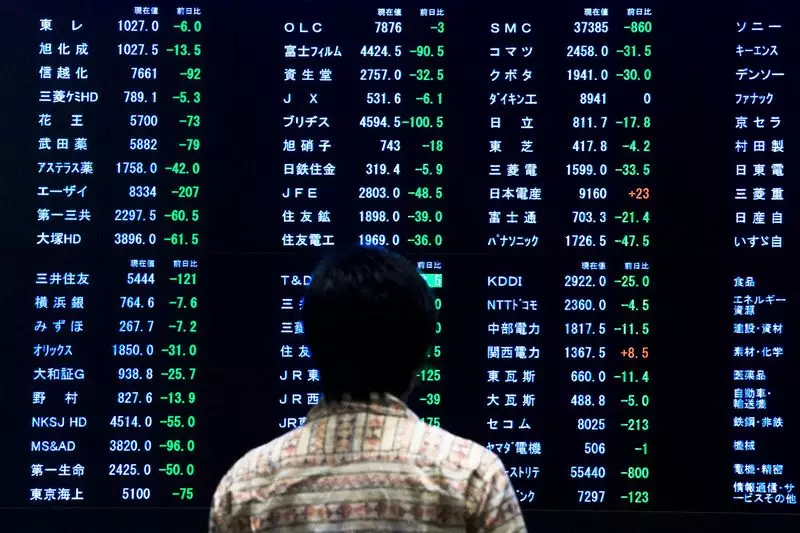In the complex landscape of global finance, Asian equities exhibited diverse trends this past Friday. On one hand, the markets welcomed robust inflation data from Japan, resulting in notable gains for Japanese shares, while, conversely, South Korean stocks plunged due to escalating political crises. This article delves into the intricacies shaping these movements, analyzing the underpinning economic indicators and political dynamics that are steering investor sentiment within the region.
Japanese financial markets experienced a significant upswing as the Nikkei 225 soared by 1.5%, positioning itself for an impressive weekly gain nearing 4%. The TOPIX index also followed suit, appreciating by 1%. This bullish sentiment stemmed from unexpected increases in the Consumer Price Index (CPI) in Tokyo, which underscored growing price pressures within the economy. The data alludes to a robust economic backdrop that may prompt the Bank of Japan (BoJ) to consider tightening its monetary policy sooner than initially expected.
A summary of opinions from recent BoJ meetings revealed that policymakers are increasingly optimistic about the prospects of raising interest rates, with at least one member suggesting that action could occur “in the near future.” However, it is critical to approach this news with cautious optimism. Despite the rise in consumer prices, Japan’s factory output dipped in November, although the decline was less severe than anticipated. This juxtaposition highlights a delicate balance where inflation is increasing, but real industrial activity faces challenges, especially given the subdued foreign demand.
In China, the market continued its upward trajectory with the Shanghai Shenzhen CSI 300 and the Shanghai Composite indices rising by 0.4% and 0.3%, respectively. The Hang Seng index in Hong Kong also topped slightly higher, reflecting a broader regional positivity. However, behind this facade of growth lies a more complicated narrative; China’s industrial profits showed signs of falling at a lesser rate in November, presenting a glimmer of hope for the beleaguered sector.
Additionally, while the World Bank has revised China’s economic growth forecast for 2024 and 2025 upward, it also issued a cautionary note. Sustained issues like weak household spending and business confidence, compounded by ongoing challenges in the property sector, threaten to stymie overall economic recovery in the near term. Investors are keenly awaiting definitive policy action from Beijing, specifically related to stimulus measures aimed at reinvigorating growth. Recent reports hint at an increase in fiscal spending, which, if rolled out effectively, could bolster the underlying economy.
In stark contrast to the prevailing optimism in Japan and China, South Korean equities faced significant downward pressure, with the KOSPI index declining over 1.5%. This marked the third consecutive session of losses, highlighting the impact of a deepening political crisis. The nation’s acting president, Prime Minister Han Duck-soo, finds himself embroiled in controversy, facing an impeachment vote that stems from the Constitutional Court’s discussions concerning President Yoon Suk Yeol’s controversial martial law.
This political instability raises critical questions not just about the governance of South Korea but also about its economic future. The turmoil has led to growing concerns from international allies regarding South Korea’s democratic integrity. Markets typically react negatively to political uncertainty, and the ongoing crisis undoubtedly feeds into investors’ wariness, impacting capital deployment and general economic sentiment.
The mixed performance of Asian markets reflects a broader narrative of resilience against a backdrop of political instability and economic signals. Japan’s encouraging inflation data provides a counterpoint to the stagnation seen in other regional markets, while the challenges and opportunities in China underscore the complexity of navigating the world’s second-largest economy. On the other hand, South Korea’s political turmoil brings to light the fragility that can accompany exacerbating crises.
Navigating this intricate web of factors will require investors to remain vigilant and adaptable as they assess both the potential rewards and risks embedded in the current landscape. Ultimately, emerging economic trends will not only shape national prospects but could also redefine the trajectories of investments across the continent.

